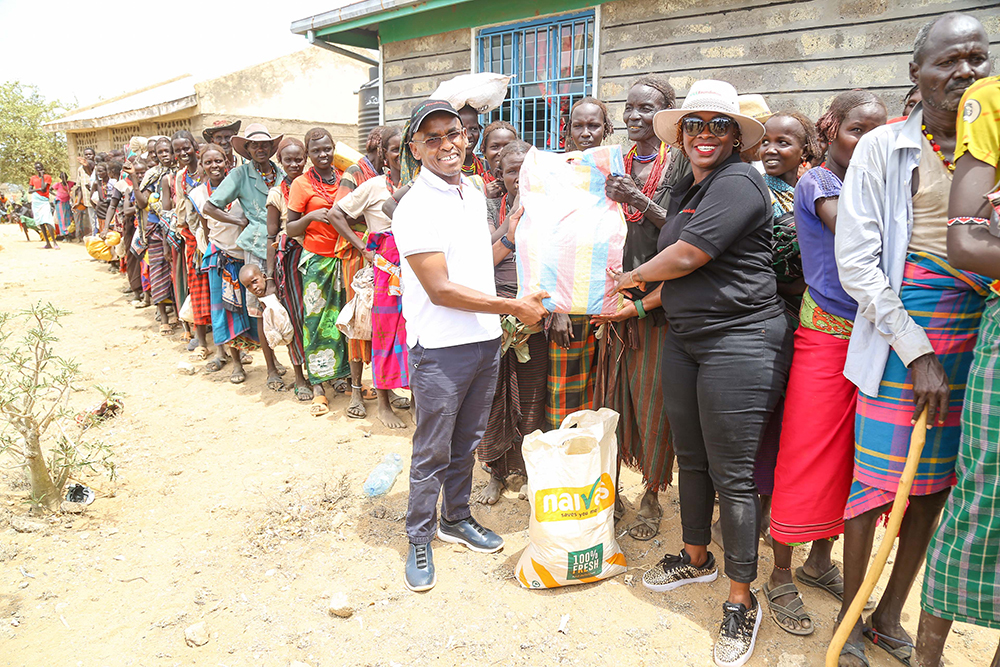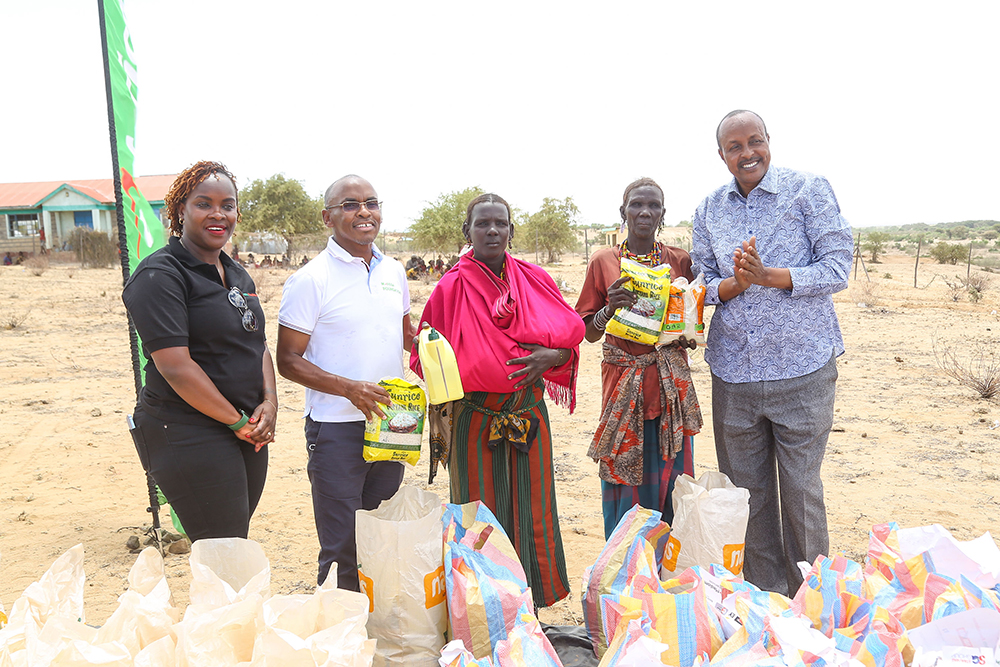What the weather is telling us about climate change
Karen Basiye, director of Sustainable Business and Social Impact at Safaricom PLC, reflects on the stark realities and impact of climate change on the ground in Kenya and across Africa, where the livelihoods of millions of people are at risk because of the prolonged drought.
Two months ago, I joined Safaricom CEO Peter Ndegwa in a village in Marsabit County in northern part of Kenya where we had gone there to oversee a food distribution exercise courtesy of an initiative spearheaded by Safaricom and other private sector players. This project was aimed at rallying Kenyans to come together and support those suffering from the effects of the prolonged drought.
While there, we came face-to-face with the stark reality of the effect of the drought; coming across fellow Kenyans queuing for hours waiting for food donations. It was heart wrenching to see them in such a dire state, most of them having no idea where their next meal would come from, if it wasn’t for the foodstuff we were distributing.

Safaricom PLC CEO, Peter Ndegwa (second left), with Director of Sustainable Business & Social Impact, Karen Basiye hand over food hampers to residents of Illeret in Marsabit County.
In November 2021, scientists at the Famine Early Warning System Network sent out a warning that an unprecedented drought in the Horn of Africa was imminent if poor seasonal rainfall continued into 2022. This prediction turned out to be true hence the reason we went down to Marsabit that day and why we donated foodstuff to over 20,000 households.
East Africa, and in particular, parts of Somalia, Djibouti, Ethiopia, and Kenya, are experiencing some of the driest conditions and hottest temperatures. According to UN Environment, as many as 13 million people are currently experiencing acute food and water shortages and a projected 25 million will face a similar fate. According to Kenya’s National Drought Management Authority the number of Kenyans in need of food assistance is estimated at 3.5 million.
Scientists are blaming climate change for the current crisis in a part of the world that is least able to cope. This is the harsh reality of climate change. It’s no longer just about small change in weather patterns; It’s about real lives being affected.
Africa contributes to about two to three per cent of global emissions that cause global warming and climate change. However, the continent suffers the heaviest impacts of the climate crisis, including increased heatwaves, severe droughts and floods.
Unfortunately, Climate Change is not a conversation that many African businesses are prepared to have, despite the fact that Africa stands to become the fastest growing and pivotal markets in the world over the next 20 years. However, in order to achieve that growth sustainably, we will need to act now.
We need to ensure this growth does not rely on the high carbon inputs that have traditionally fuelled that progress in other markets. While businesses can’t stop famine or alter the course of climate shifts already in motion, we can adjust our own behavior to help mitigate these crises.
For a telco business like Safaricom, it means analyzing how to continue to ensure our carbon intensity decreases as our network and traffic increases. It means having a strategic approach towards managing our environmental impacts.
The first step, however, lies in knowing what your numbers are, showing them transparently and working on improving these numbers. That is why we have continued to track, report and act on our numbers through our commitment to becoming a Net-Zero carbon emitting company by the year 2050.
It is an ambitious goal, but one that is forcing us to think more creatively about how we can achieve it while still supporting network growth. Over the last 8 years, we have been measuring our carbon footprint and we have now successfully registered our carbon reduction targets with the Science-based Targets Initiative.
This means that our targets are in line with the latest climate science – necessary to meet the goals of the Paris Agreement aimed at limiting global warming to well-below 2 degrees above pre-industrial levels and pursuing efforts to limit warming to 1.5 degrees.
To ensure we meet the targets going forward, we continue to transition our network sites to renewable sources of energy. So far, 92% of the over 5,500 sites in our network are running on either the national grid or renewable and hybrid energy sources.
We have also planted over 1 million trees under our carbon offset tree growing initiative which is part of our commitment to grow 5 million trees in five years, which we estimate will offset 26% of our emissions.
In partnership with a company called M-Kopa Solar, we have also provided access to solar energy to over 800,000 households impacting 3.3 million lives and resulting in over 1.7 tonnes of avoided emissions. We have also developed a staff individual carbon footprint calculator to help staff determine and mitigate their contribution to carbon emissions.
These are strategic decisions that we make. Not because any regulator or law obligates us to do so, but because we understand, environmental considerations are an integral part of our overall business sustainability and success.
However, we know that we cannot do it alone. That is why we are happy to be one of the companies to have been identified by the UN Global Compact for the Africa Business Leaders Coalition to advance climate action and sustainable growth across the continent.

Safaricom PLC CEO, Peter Ndegwa and Director of Sustainable Business & Social Impact, Karen Basiye, as they hand over food hampers to, Lugau Titiay, a resident of Illeret in Marsabit County, Nothern Kenya
Ahead of COP27 which will be held in Egypt the coalition will focus its efforts on sustainable development and ambitious climate action by bringing the perspectives of dozens of leading African CEOs and Board Chairs into the global conversation.
This will culminate in a Climate Statement in support of COP27, anchored in the goals of the Paris Agreement, the Sustainable Development Goals and the UN Global Compact Ten Principles.
There is an African proverb that says ‘Do not call the forest that shelters you a jungle’, which loosely translates to ’Do not insult someone who is taking care of you’.
We should all take our social and moral responsibility to manage our environmental impact seriously, so that we ensure this one planet that is taking care of us will also take care of future generations.




